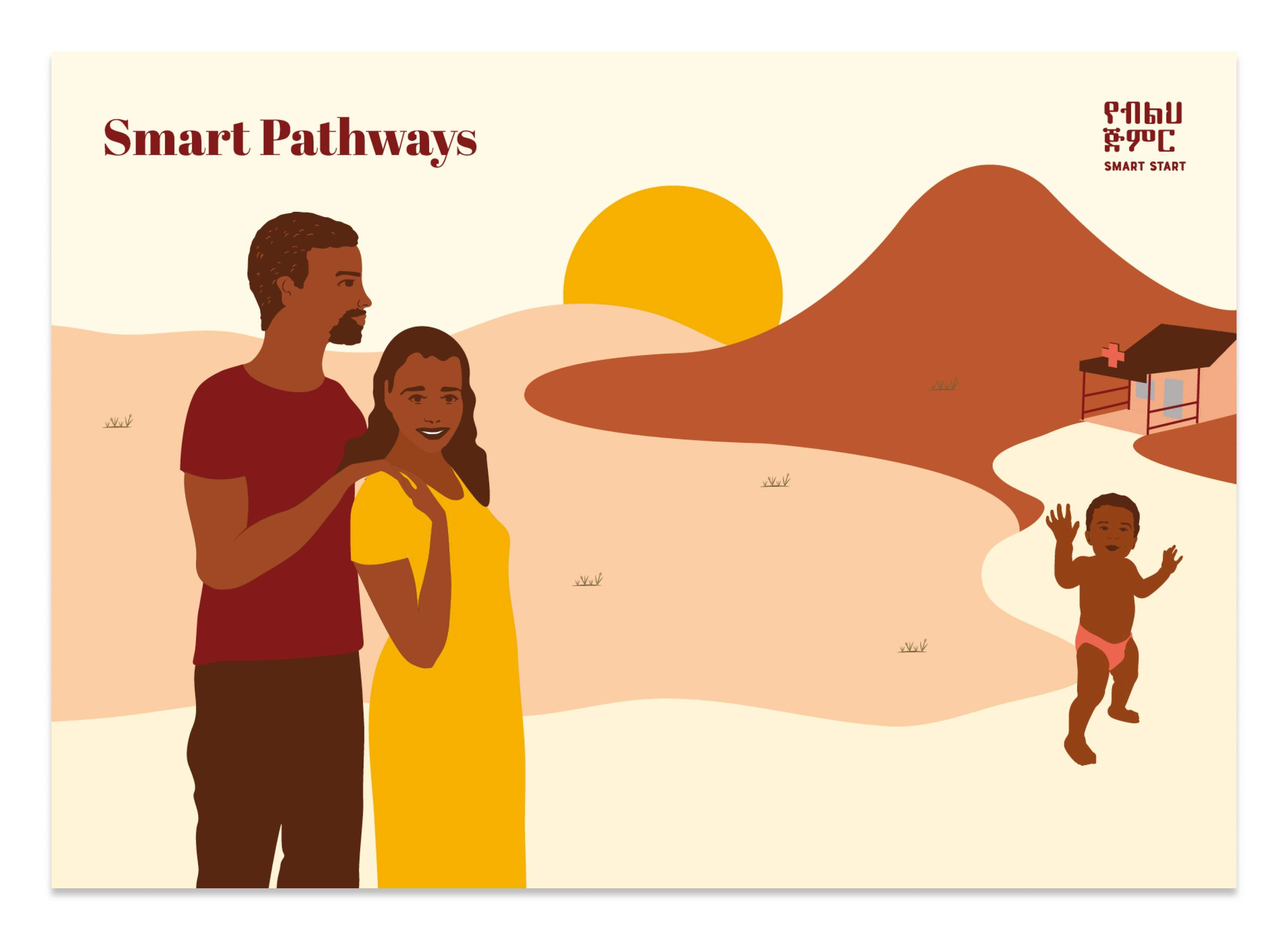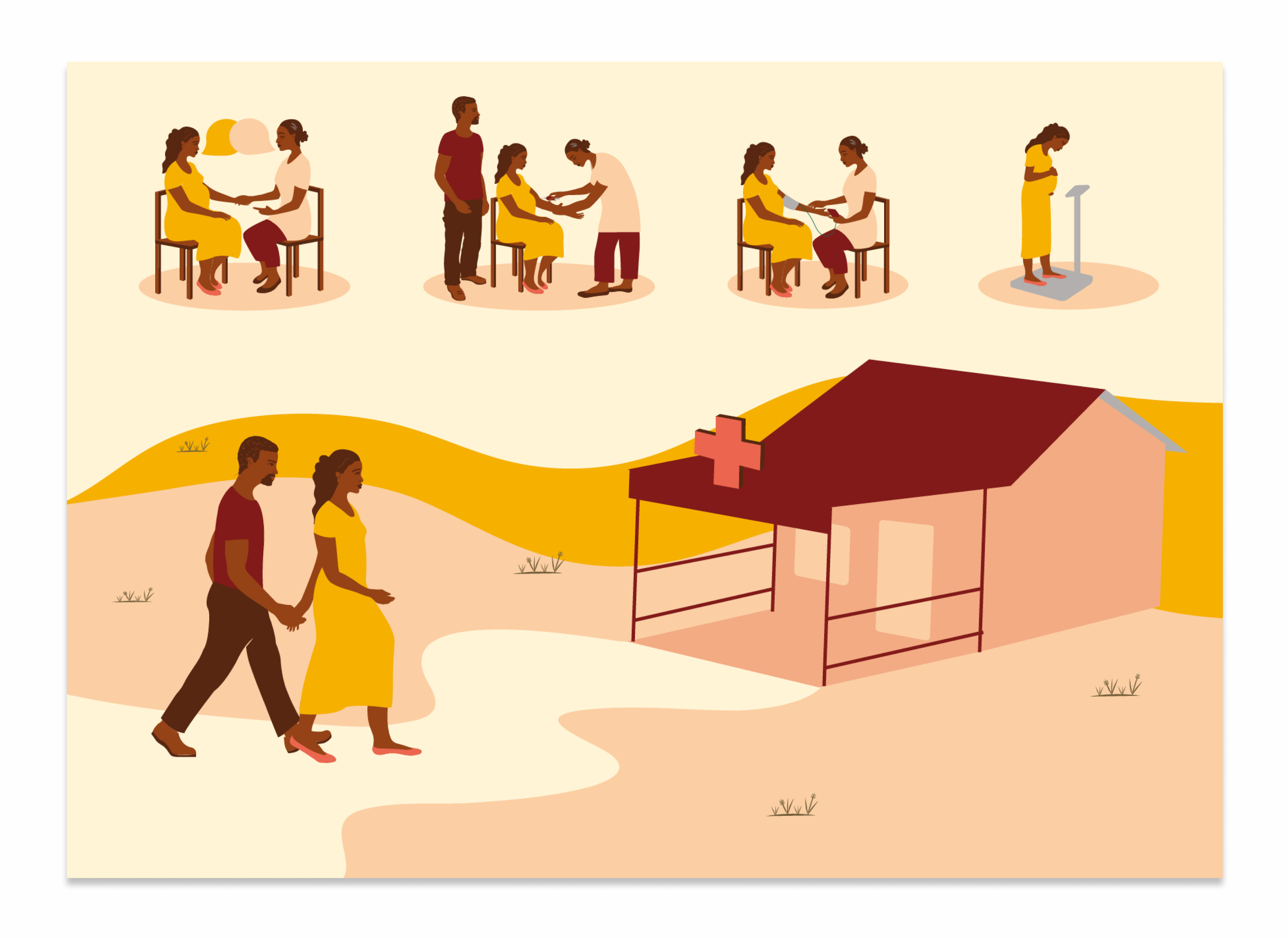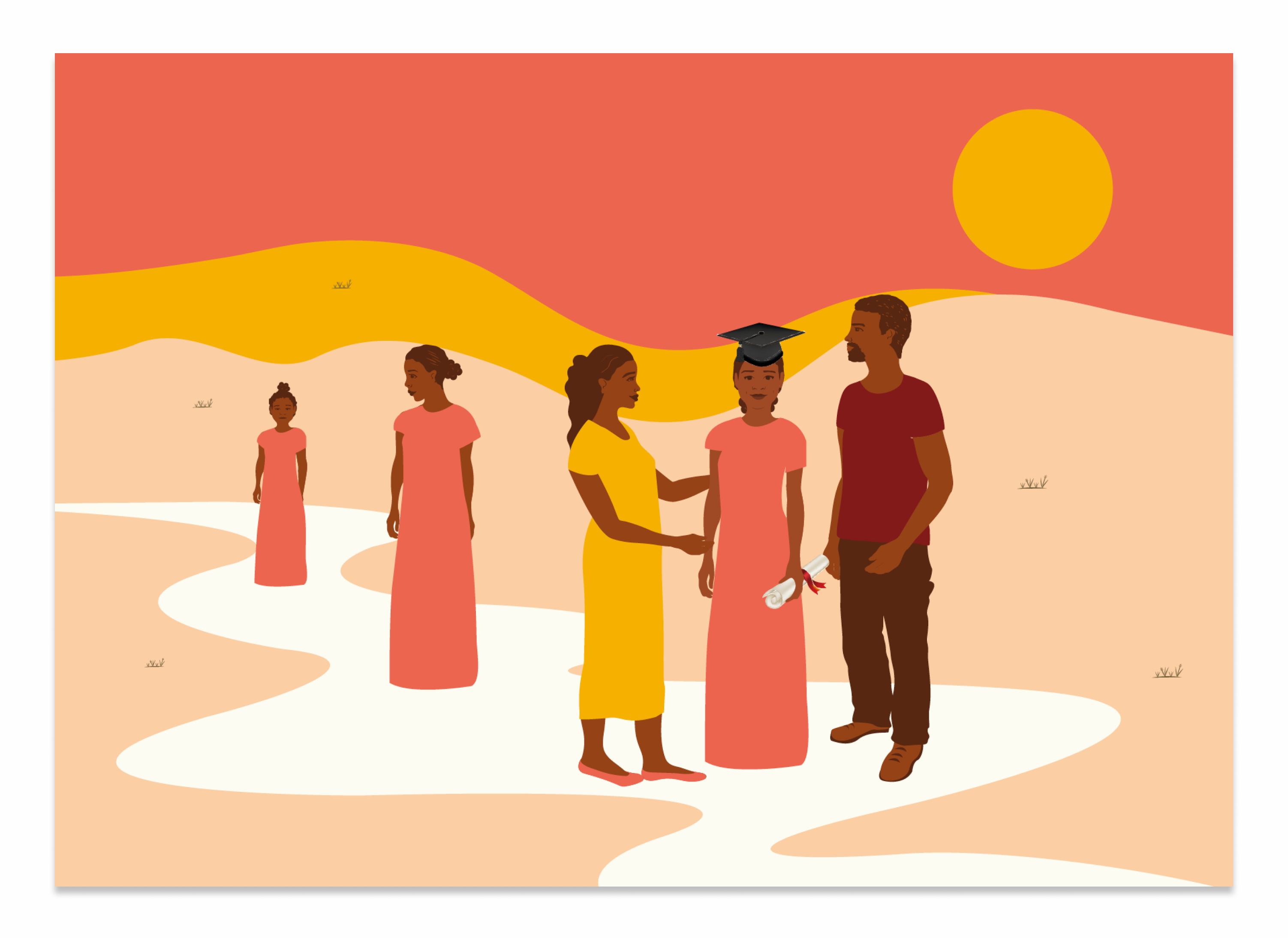
Family Planning In Rural Ethiopia
+ PROJECT - Smart Start Project, Part of A360 Amplify Ethiopia
+ ORGANIZATION - IDEO.org partnering with PSI Ethiopia
+ CONTENT COURTESY - IDEO.org
+ ROLE - Co-leading the project | HCD Research & Service Design
This project was conducted in collaboration with IDEO.org and PSI Ethiopia, supporting Smart Start's mission to empower young married adolescent girls and their partners. Our work focused on ensuring these young women have access to essential information and personal agency needed to pursue healthy pregnancies when they choose motherhood. Critically, the initiative also emphasized maintaining continuity of care through ongoing family planning services and counseling support.
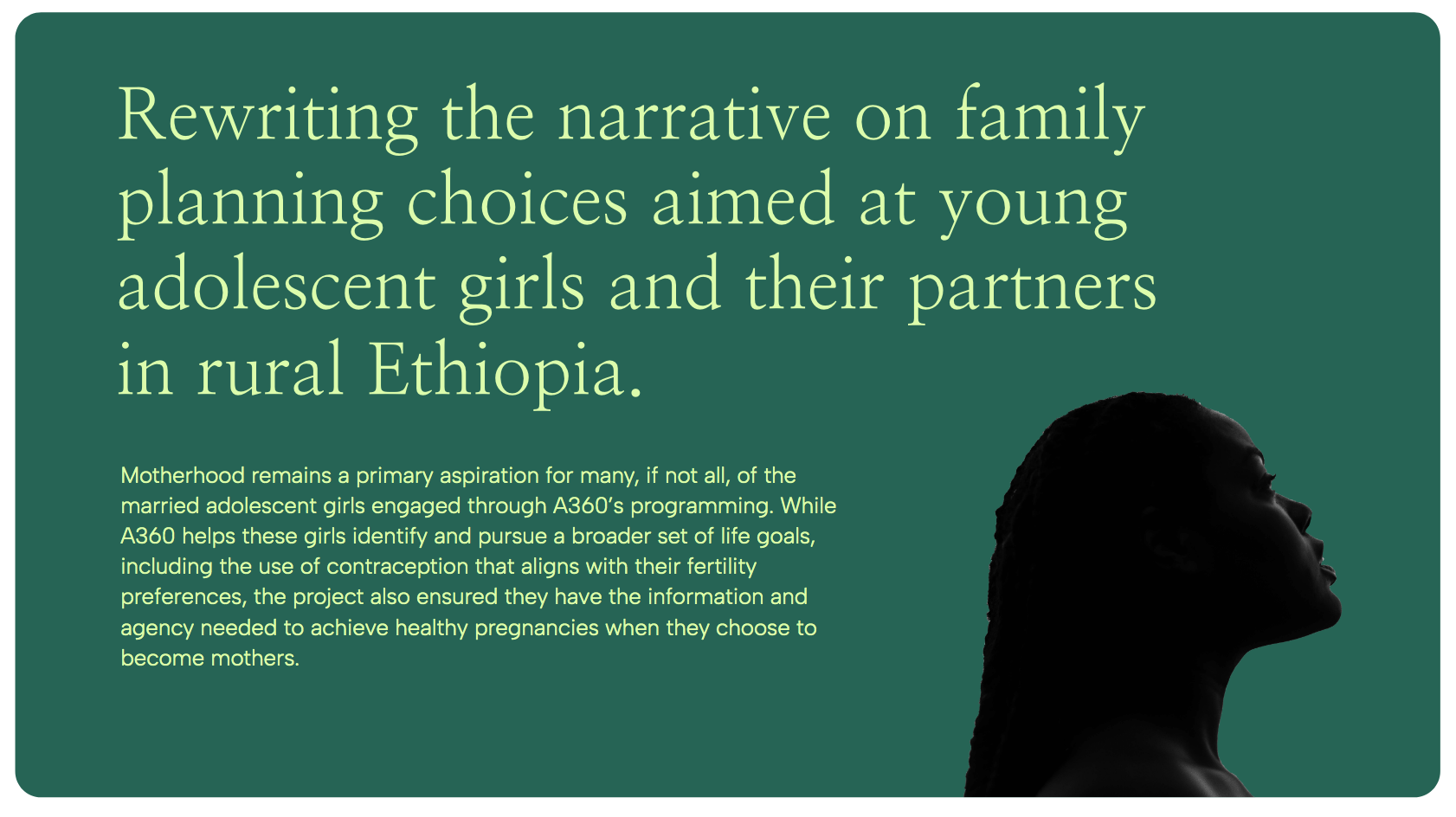

01



02
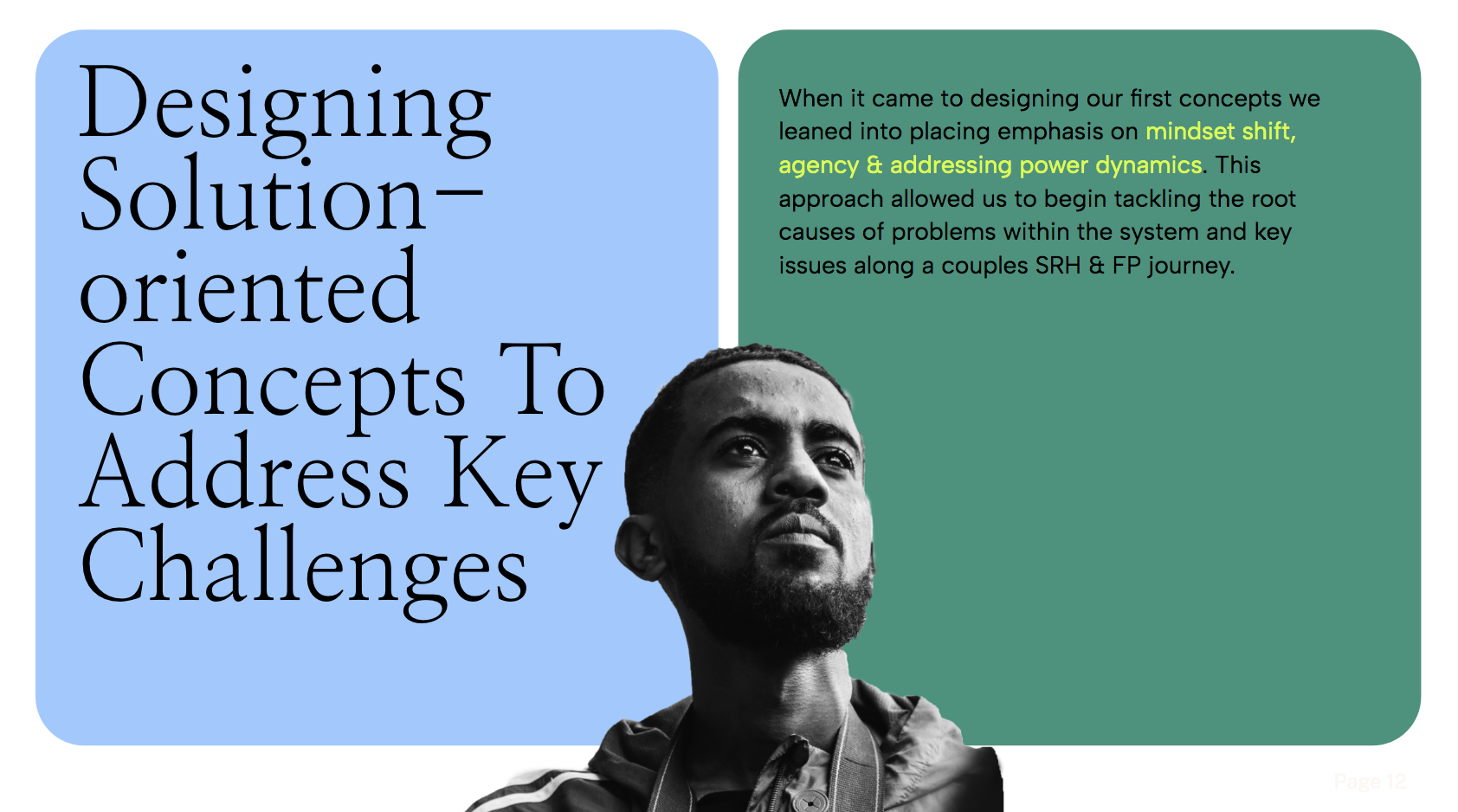

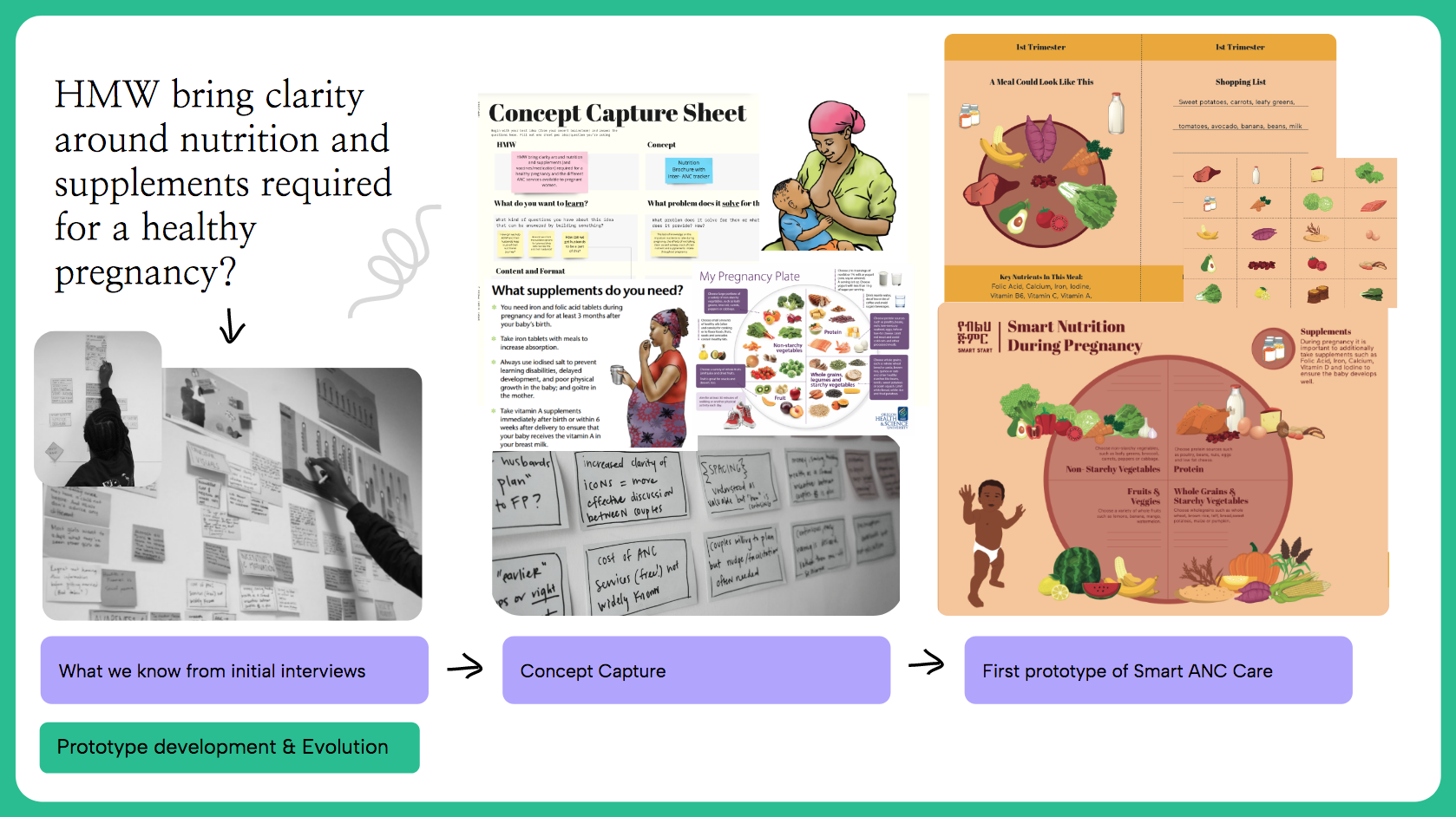
03
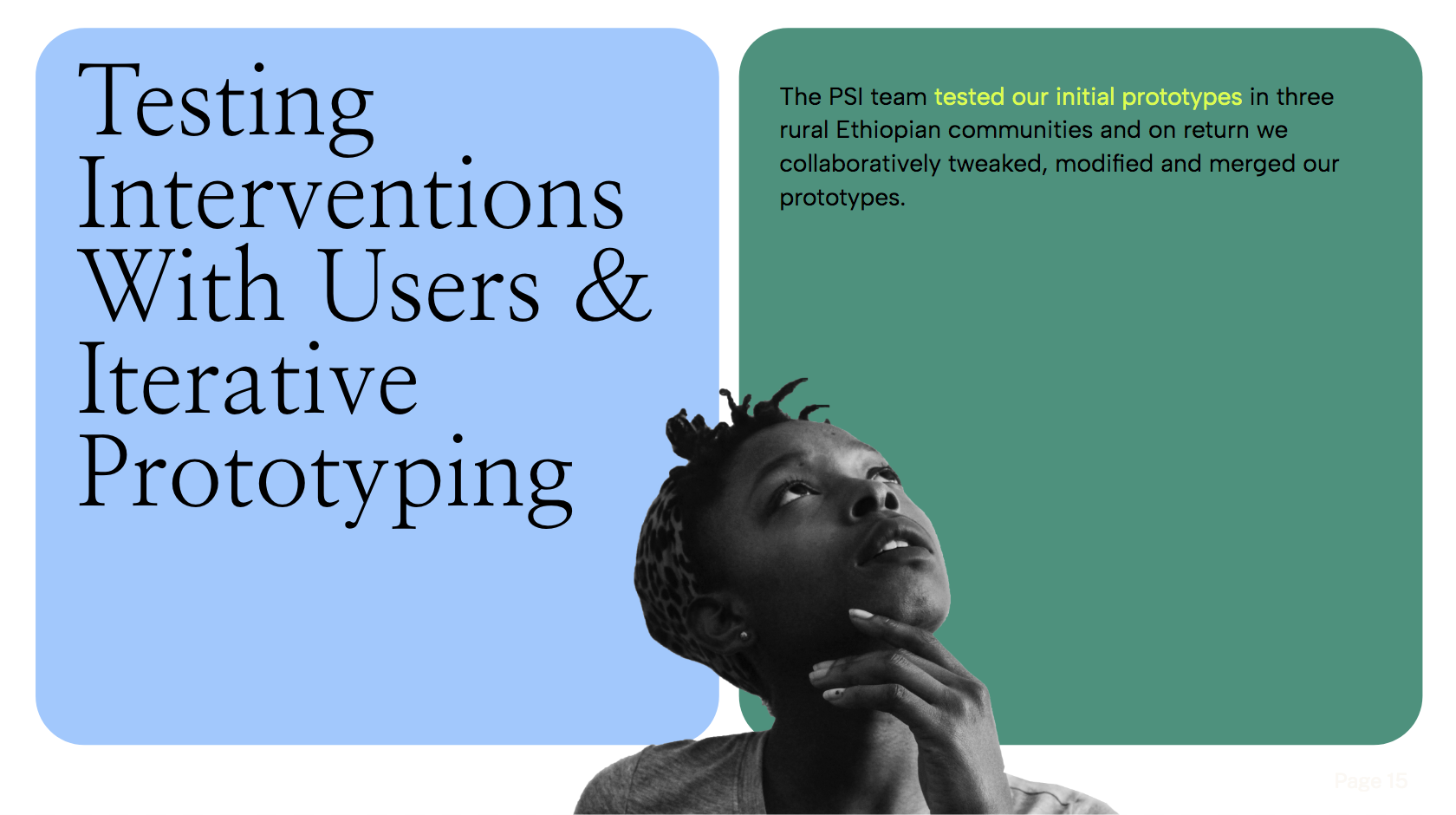


04

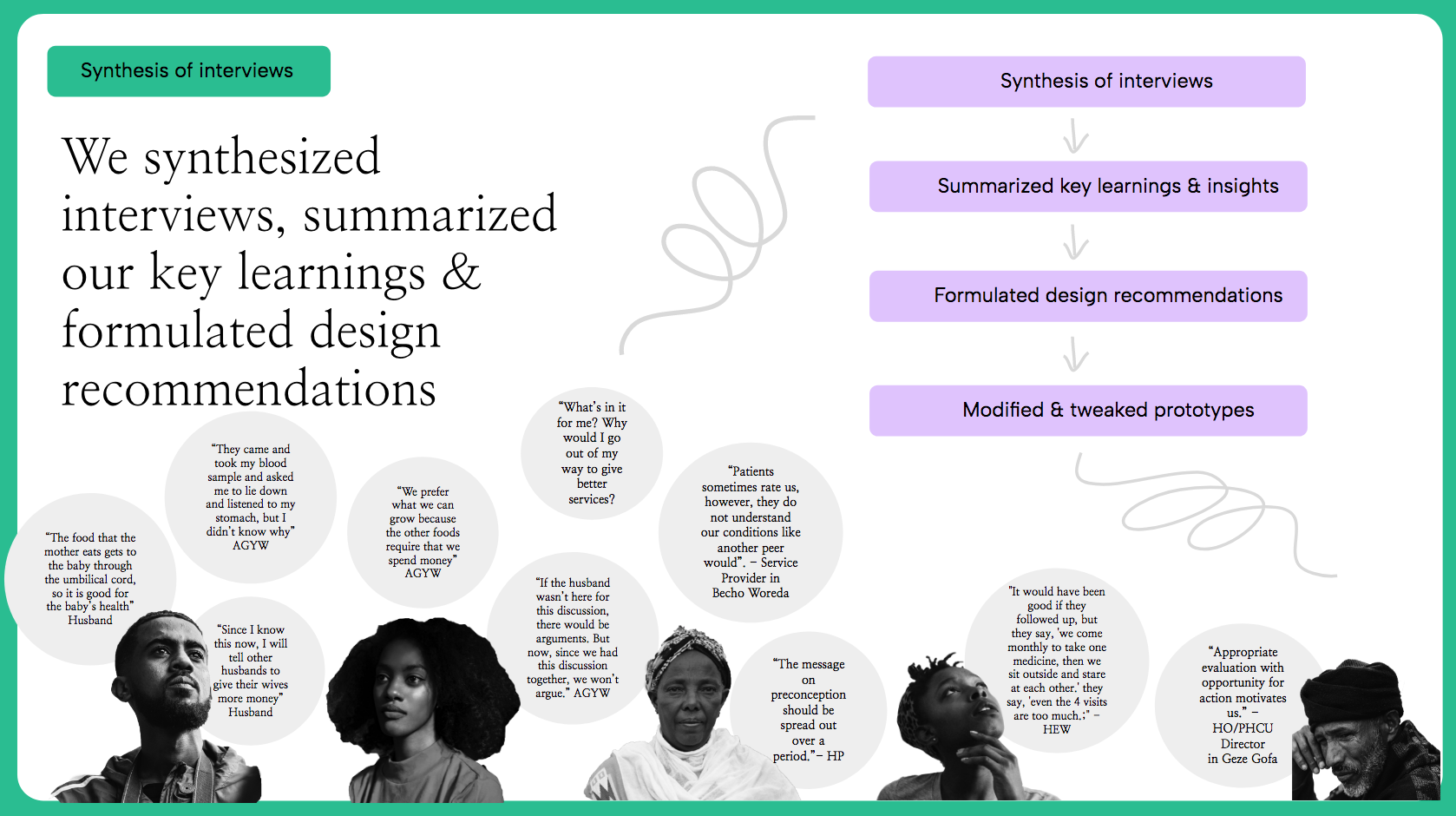
We designed assets that focused on counselling and guiding young married couples through their sexual reproductive health journeys & family planning options.
The assets were centered around preconception care, how to lead a healthy pregnancy focusing on nutritional diet and adhering to ANC attendance and postpartum family planning.
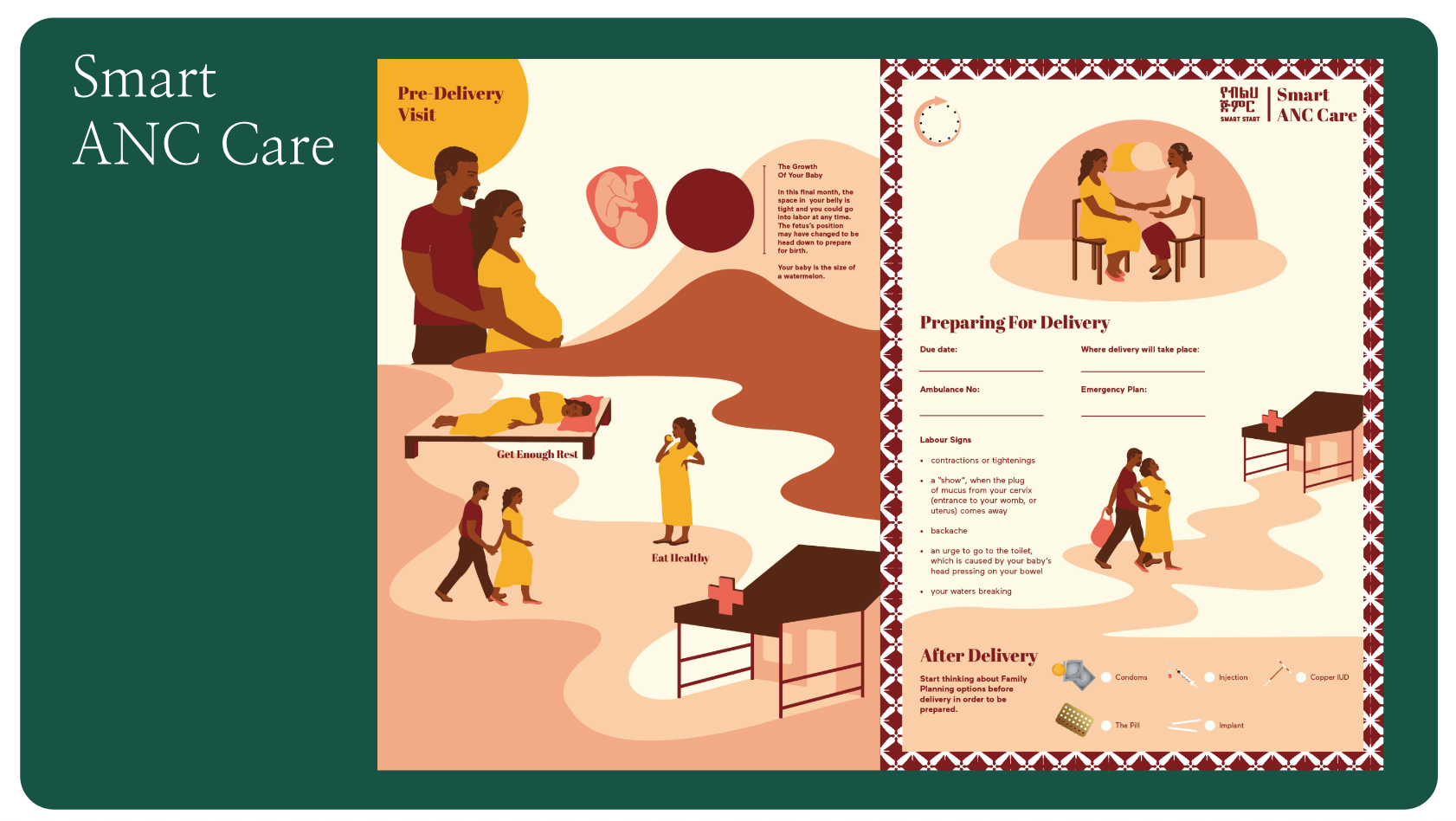



Smart ANC Tracker
Smart ANC Care tracker guides expecting young couples through the pregnancy journey from preconception and delivery to postpartum family planning. It lays out vital information on developmental growth stages of the baby, danger signs during pregnancy and an ANC checklist. It nudges couples to adhere to ANC visits and aims to prompt interactive conversations and joint decision making to ensure a health pregnancy.
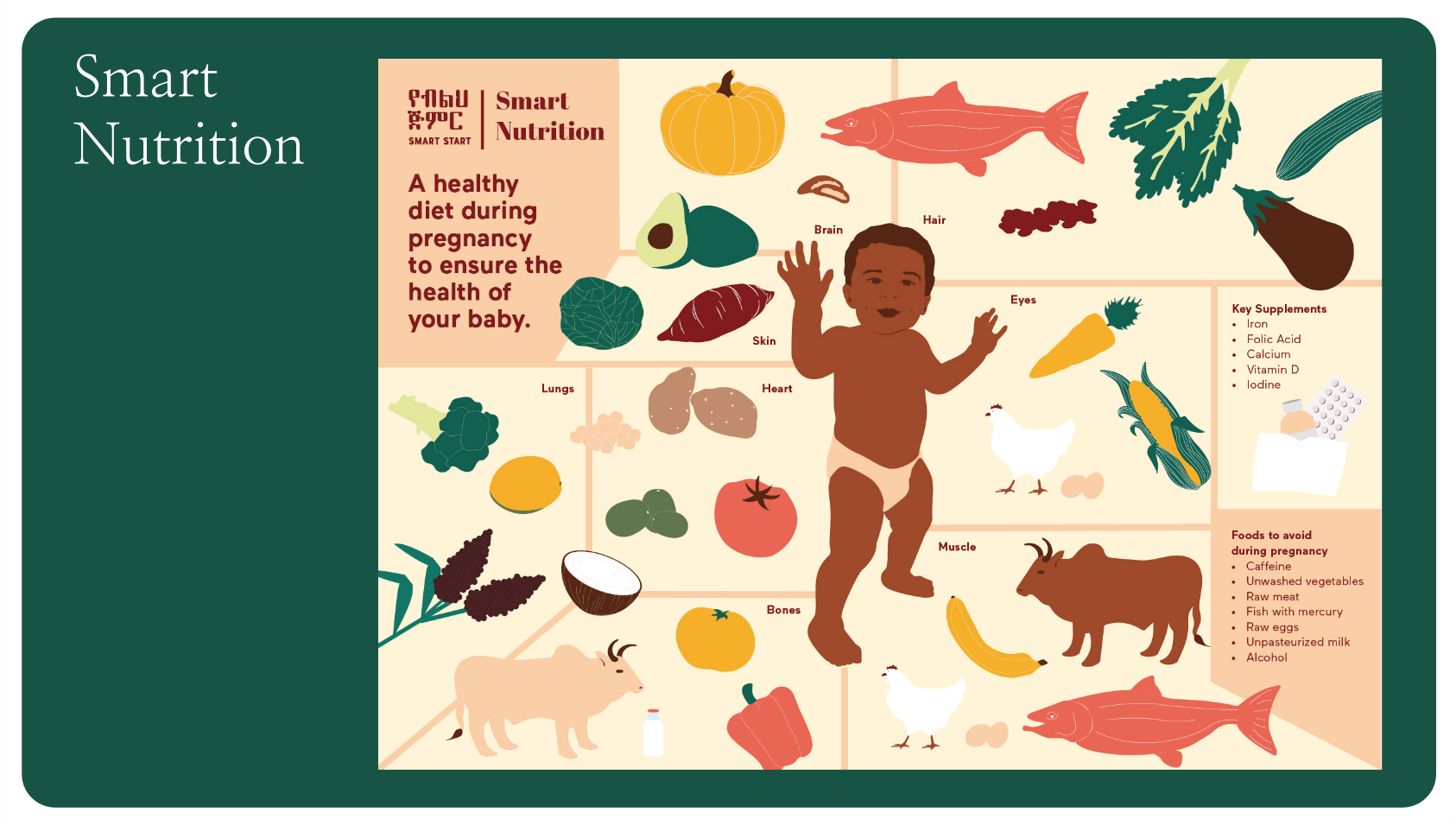
Smart Nutrition
The Smart Nutrition leaflet offers clear recommendations on essential nutrition and supplements for a healthy pregnancy.
